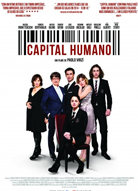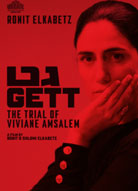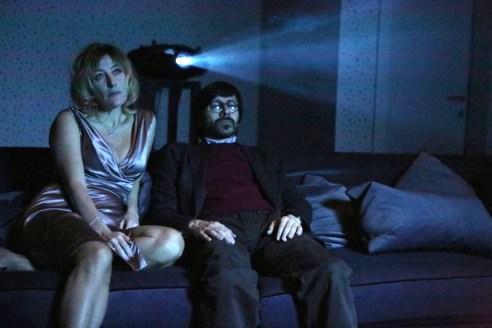Tim here. A week ago today, two things happened: the Academy announced the complete list of submissions for the Best Foreign Language Film race, and the 50th Chicago International Film Festival opened. That's put me in a position to see a lot of those submissions firsthand, and this week and next I'll be sharing my quick thoughts on several of the ones that the Film Experience hasn't otherwise looked at.
 AFGHANISTAN: A FEW CUBIC METERS OF LOVE
AFGHANISTAN: A FEW CUBIC METERS OF LOVE
In a grubby part of Tehran, a population of Afghan refugees ekes out a small living and strives to retain their culture and sense of worth while dodging the police. Against this background, a young Afghan woman (Hasiba Ebrahimi) and an Iranian boy (Saed Soheili) fall in love, only to find their relationship threatened when her father decides to flee Iran. So it's yet another Romeo & Juliet riff, although in this case the unexpected context gives it some freshness, and the film does good work balancing its depiction of the hard life of the refugees in an unfriendly place with the romantic plot. Ebrahimi and Soheili also have excellent, unforced chemistry with each other, making for an especially appealing representation of a stock scenario. It's a little minor and not too daring, but it's awfully moving.
Oscar prospects: Stranger things have happened, though central Asia hasn't done all that well here over the years, and the realist style is a little on the chilly side. I suspect it would have to be one of the films swept in by executive decision, and there are bigger-name titles that are much likelier to receive that boost.
Israeli divorce, Italian essay, and Swiss gays after the jump...
 ITALY: HUMAN CAPITAL
ITALY: HUMAN CAPITAL
Reigning Foreign Language champ Italy's submission this year actually beat Oscar-winner The Great Beauty when they went head-to-head at the David di Donatello awards. And it is, sure enough, the better film: three parts each centered on a different individual in the Italian upper classes, all combining to tell one complete story of accidental death and the tools that the rich have to insulate themselves from any need to behave like decent members of society.
It's every inch a Message Movie about These Dire Economic Times, but the script is so fluid and elegant, and the cinematography has such a sharp, classy hardness, that the film is both entertaining and attractive, even as it consists mostly of writer-director Paolo Virzì shouting "oh my God, can you believe how awful these people involved in the financial industry are?" over and over for nearly two hours.
Oscar prospects: What effect, if any, The Great Beauty's win has on Human Capital's chances is hard to guess; but on its own, I'd say that the country's track record and the film's themes, handsome visuals, & not-too-complex complexity put it in a great position to end up with a nomination.
 ISRAEL: GETT: THE TRIAL OF VIVIANE AMSALEM
ISRAEL: GETT: THE TRIAL OF VIVIANE AMSALEM
The story of a woman's years-long quest to divorce her husband, stymied by the Kafkaesque rules of Israel's court system and its insistence on favoring the husband, who in this case is stonewalling her for reasons that make no sense to anybody. The film piles on its absurdities with surprisingly effective dry comedy, eventually shifting into furious political grandstanding without feeling like it's forcing things. On the other hand, its repetitive shot set-ups and scene structure (it all takes place in one location, skipping ahead weeks and months at a time) start feeling awfully limited and dull long before the two-hour film starts to heat up for its climax. People seem to love it, so maybe I'm just a grump, but I'd have been happier with a bit more flexibility or a much shorter running time. Co-director Ronit Elkabetz is terrific as Amsalem, constructing a rich personality almost solely out of reaction shots.
Oscar prospects: Israel is one of the safer bets you can make in this category, especially with a proven crowd-pleaser and awards magnet. I'd be more surprised if it didn't make the 9-film shortlist, at least. [Reviewed by David from the LFF earlier this week]
 SWITZERLAND: THE CIRCLE
SWITZERLAND: THE CIRCLE
A hybrid of sorts: in the present day, director Stefan Haupt interviews Ernest Ostertag and Röbi Rapp, who have been together since 1956 and were the first gay couple to be officially recognized after Swiss law permitted same-sex unions in 2007. In the past Matthias Hungerbühler and Sven Schelker play the couple during the time they met and became political activists working with Zurich's groundbreaking gay-interest magazine The Circle. The present-day documentary footage is charming if not challenging in any way, and the couple's stories are unfailing interesting and illuminating. The 1950s biopic material, which rather unnecessarily expands to become 1970s biopic material as well, is pedestrian and clumsily-made, like a bunch of well-meaning amateurs raided a thrift shop for old clothes to stage an improvised historical re-enactment. It's not weak enough to strip the warmth and vitality from the present-day interviews, but there's much more of it.
Oscar Prospects: Not good. The film's unorthodox structure isn't the Academy's cup of tea (the only real precedent for this is 2008's animated documentary Waltz with Bashir), and it would take a much more accomplished piece of filmmaking to overcome that bias.
